View more
Packioli is a biodegradable soap packaging made from artichoke leaves and peapods
Alice Finney |
Industrial design student Alara Ertenü has developed a packaging solution for soap made from peapods and artichoke waste, which is currently on show as part of Dutch Design Week.
The packaging, which comes in a golden-brown colour, is designed to offer a less polluting alternative to commonly used plastic soap packaging. The project aims to address the pressing environmental issue of single-use plastic consumption while simultaneously reducing food waste.
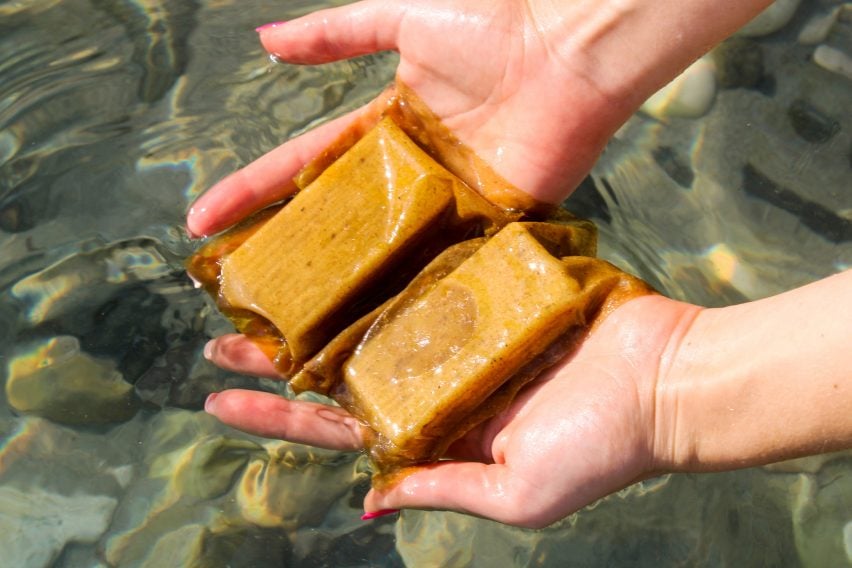
"All of this curiosity started with a question: how can these local food wastes be circulated back into the economy," Ertenü told Dezeen.
"The goal behind the zero-waste wraps is to eliminate plastic packaging and also meet the hygiene, logistics and endurance needs of soap brands."
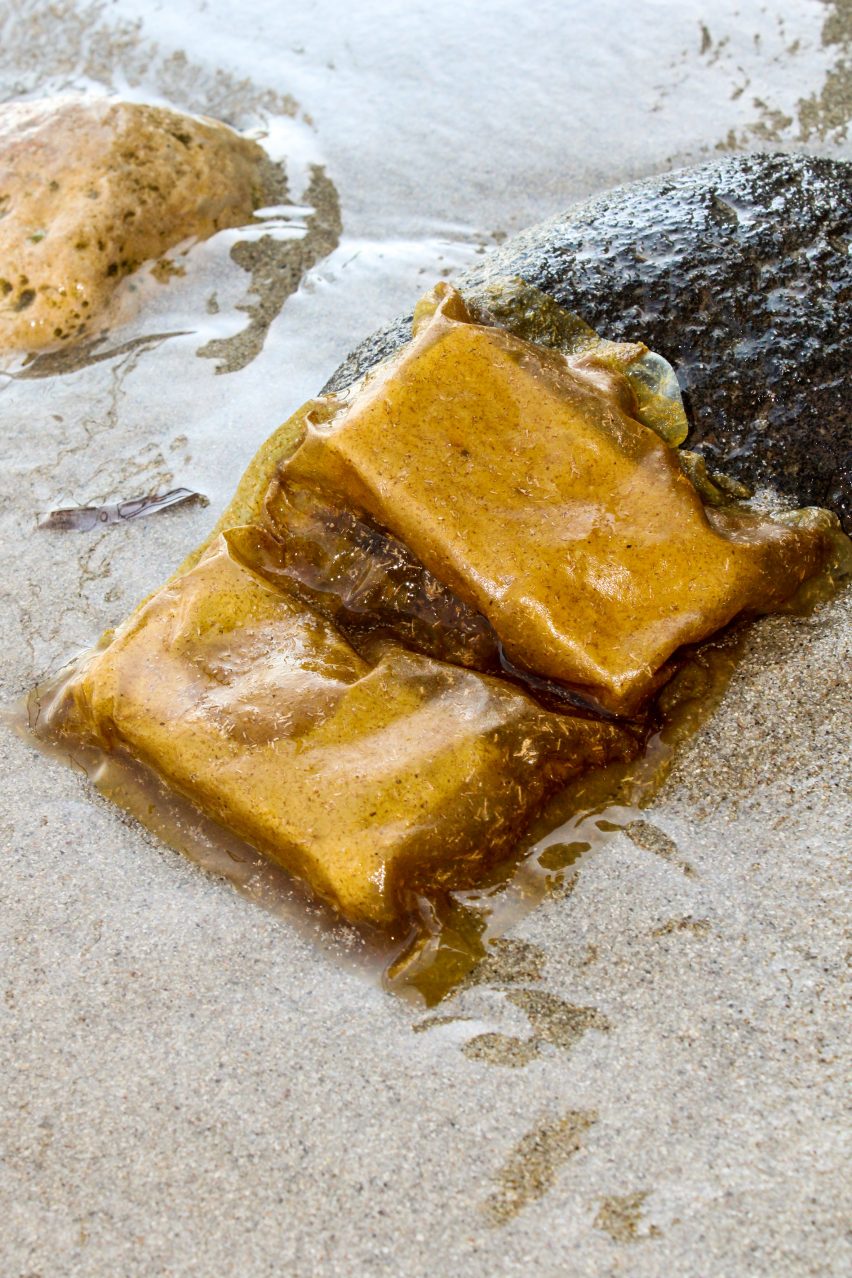
To make Packioli, artichoke leaves and stems are freezer-dried at minus 70 degrees Celsius alongside the peapods before being pulverized into a fine powder.
The powder is then mixed with water, vegetable glycerin and alginic acid – a natural acid derived from brown algae – to form a gummy-like substance.
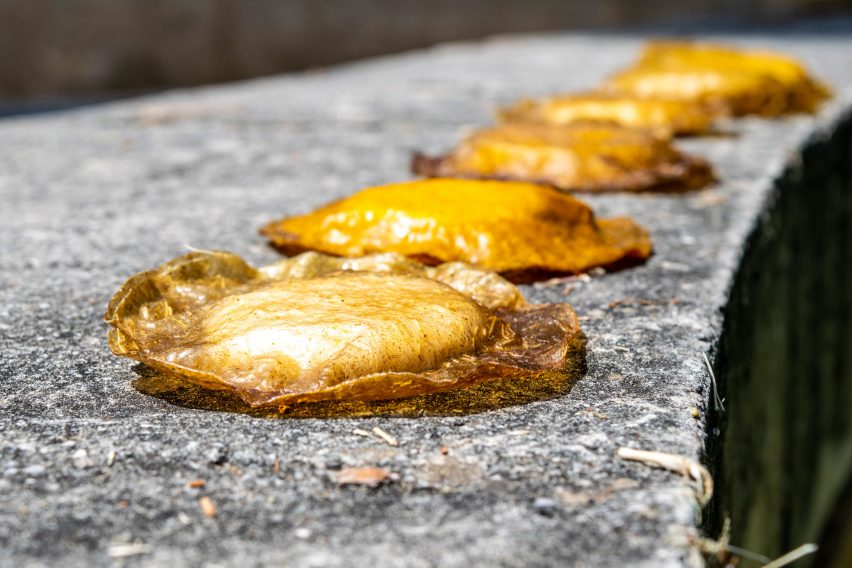
This is then poured into a mould and left to dry for up to two days at room temperature. Once set, Ertenü uses heat to seal the edges of the little parcels. Finally, the packaging is dyed using beetroot and turmeric, giving it its golden hue.
The packaging's name, Packioli, combines the words packaging and ravioli in reference to how the edges of ravioli pasta are sealed.
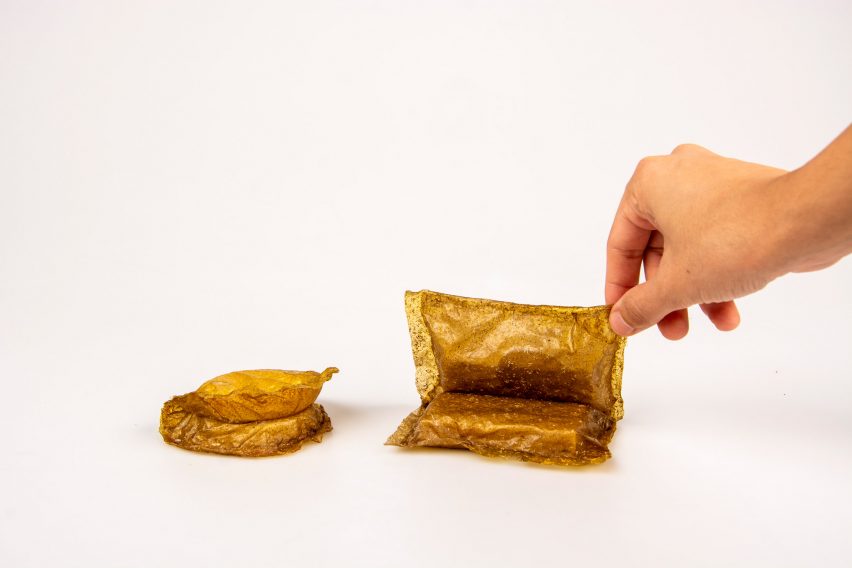
Translucent and speckled in appearance, Packioli can be used to package soaps of different shapes and sizes and is designed to biodegrade completely within 15 days.
Users can keep Packioli in a dry place to preserve it for longer, or rest it on a soap dish and allow it to melt away in contact with water and with use.
"Packioli is resistant to humidity and water for up to one week, which ensures that it remains intact for 10 to 15 days if there isn't any contact with human skin under water pressure," she said.
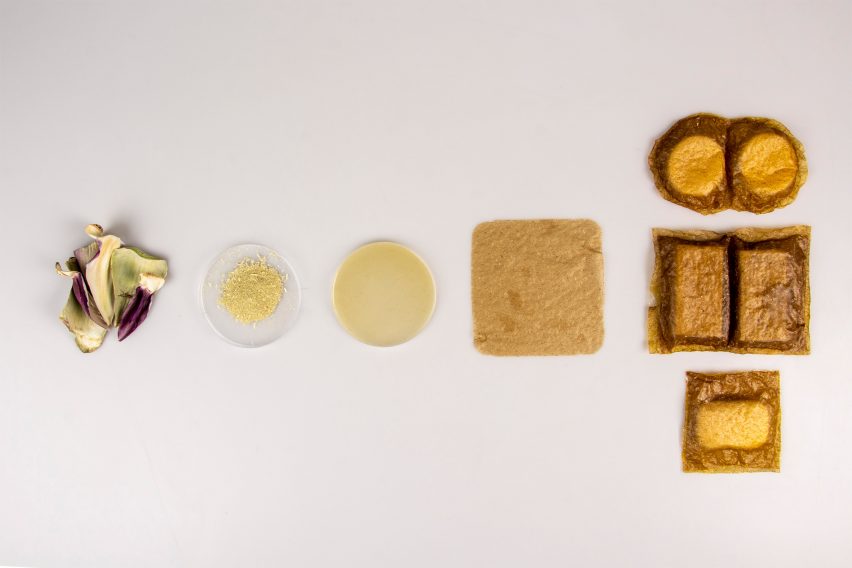
Ertenü, who is studying at the Izmir University of Economics in Turkey, sources the artichokes and pea pods for Packioli from a local market in Izmir, where according to the designer, around 80 per cent of every artichoke goes to waste.
"I regularly go to the local bazaar on the weekends to observe and talk with local people to investigate what is left out of the equation in the local food system," Ertenü explained.
"By using artichoke leaf, it tackles the enormous artichoke waste – 80 per cent of each artichoke thrown out – especially in the west of Turkey."